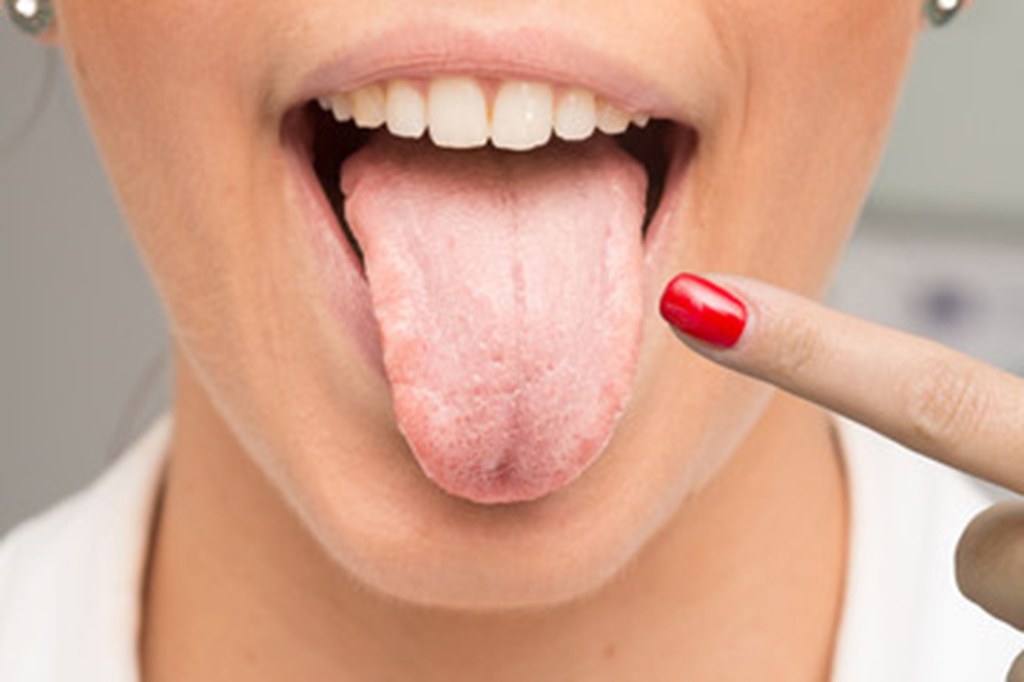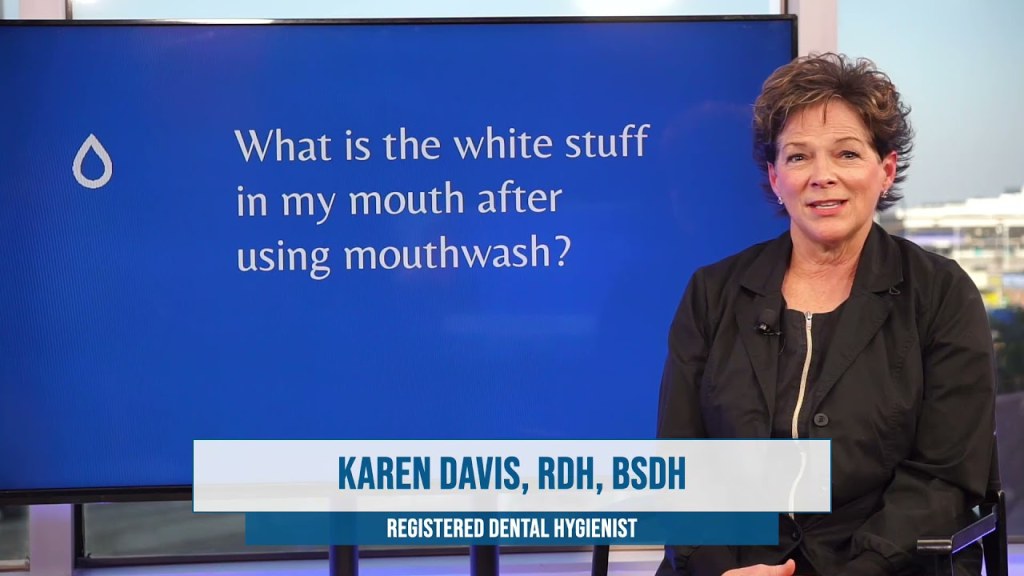Say Goodbye To White Stringy Stuff In Your Mouth After Mouthwash With Our Effective Solution – Click Here For Fresh Breath!
White Stringy Stuff in Mouth After Mouthwash: Causes and Solutions
Greetings, Stuff Enthusiast! Have you ever experienced white stringy stuff in your mouth after using mouthwash? If so, you’re not alone. This article aims to provide you with useful information about this phenomenon, its causes, and possible solutions to help you maintain a healthy oral hygiene routine. Read on to find out more!
Introduction
Mouthwash is a popular oral care product used by many people around the world to freshen their breath and kill bacteria. However, some individuals may notice the presence of white stringy stuff in their mouth after rinsing with mouthwash, which can be quite concerning. In this article, we will explore the causes of this issue and provide solutions to prevent it from happening.
2 Picture Gallery: Say Goodbye To White Stringy Stuff In Your Mouth After Mouthwash With Our Effective Solution – Click Here For Fresh Breath!
What Causes White Stringy Stuff in the Mouth After Mouthwash?
Image Source: tiktok.com
🔍 The presence of white stringy stuff in the mouth after using mouthwash can be attributed to various factors:
1. Residual mouthwash: Some mouthwash formulas contain thickening agents that can leave a residue in the mouth, leading to the formation of white stringy stuff.

Image Source: bellroaddentalcare.com
2. Saliva interaction: Mouthwash can alter the composition of saliva, causing it to become thicker and stringy, which may result in the formation of white strands.
3. Bacterial biofilm: In some cases, the presence of white stringy stuff may indicate the presence of bacterial biofilm in the mouth, which mouthwash may not effectively remove.

Image Source: ytimg.com
4. Allergic reaction: Certain individuals may have an allergic reaction to the ingredients in mouthwash, leading to the formation of white stringy stuff as a response.
5. Tongue debris: White stringy stuff may also be caused by debris, such as dead skin cells or food particles, accumulating on the surface of the tongue and mixing with mouthwash.
6. Poor oral hygiene: Inadequate brushing and flossing can contribute to the buildup of bacteria and debris in the mouth, which may interact with mouthwash and result in white stringy stuff.
Who Is Affected by White Stringy Stuff in the Mouth After Mouthwash?
👥 White stringy stuff after using mouthwash can affect anyone who uses mouthwash regularly. However, some individuals may be more prone to experiencing this issue due to various factors:
1. Thick saliva: Individuals with naturally thick saliva may be more likely to notice white stringy stuff in their mouth after using mouthwash.
2. Poor oral hygiene: Those who do not maintain a proper oral hygiene routine, including regular brushing and flossing, may be more susceptible to the buildup of bacteria and debris in the mouth.
3. Allergies: Individuals with allergies to certain mouthwash ingredients may be more prone to experiencing an allergic reaction, resulting in the formation of white stringy stuff.
4. Dry mouth: Dry mouth can contribute to the accumulation of debris in the mouth, which can interact with mouthwash and lead to the formation of white stringy stuff.
5. Bacterial overgrowth: People with an overgrowth of bacteria in their mouth may be more likely to experience the presence of white stringy stuff after using mouthwash.
6. Tongue coating: Individuals with a thicker coating on their tongue may be more prone to the accumulation of debris, which can mix with mouthwash and cause the formation of white stringy stuff.
When Does the Formation of White Stringy Stuff in the Mouth Occur?
⏰ The formation of white stringy stuff in the mouth after using mouthwash can occur immediately or shortly after rinsing. The timing may vary depending on the individual and the specific cause of the issue.
1. Residual mouthwash: If the white stringy stuff is a result of residual mouthwash, it may become noticeable immediately after rinsing.
2. Saliva interaction: Changes in saliva consistency may take a few minutes to occur, so the formation of white stringy stuff may be delayed.
3. Bacterial biofilm: If white stringy stuff is caused by bacterial biofilm, it may accumulate over time and become more apparent after using mouthwash.
4. Allergic reaction: An allergic reaction can happen almost immediately after using mouthwash, leading to the formation of white stringy stuff.
5. Tongue debris: If the white stringy stuff is due to tongue debris mixing with mouthwash, it may become visible shortly after rinsing.
6. Poor oral hygiene: In cases where poor oral hygiene is the cause, the formation of white stringy stuff may be a gradual process and become more noticeable over time.
Where Can White Stringy Stuff in the Mouth After Mouthwash Be Found?
🌍 The white stringy stuff can be found in various areas of the mouth, including:
1. Tongue: It may accumulate on the surface of the tongue, especially if there is a thick coating or debris present.
2. Cheeks and gums: The white stringy stuff may also cling to the inner cheeks and gums, particularly if there is an excessive buildup.
3. Throat: In some cases, the white stringy stuff may extend into the throat, causing discomfort or an unpleasant sensation.
4. Dental appliances: Individuals who wear dental appliances, such as dentures or braces, may notice the presence of white stringy stuff around these devices.
5. Teeth: The white stringy stuff may attach to the surface of the teeth, especially if there are gaps or crevices where debris can accumulate.
6. Saliva: It can be mixed with saliva, causing the formation of visible white strands that are noticeable when spitting or coughing.
Why Does White Stringy Stuff Form in the Mouth After Mouthwash?
🤔 The formation of white stringy stuff in the mouth after using mouthwash can be attributed to several reasons:
1. Chemical interactions: The ingredients in mouthwash can interact with saliva and oral bacteria, resulting in the formation of white stringy stuff.
2. Thickening agents: Some mouthwash formulas contain thickening agents, such as xanthan gum or cellulose gum, which can contribute to the formation of white stringy stuff.
3. Bacterial biofilm: If there is an overgrowth of bacteria in the mouth, mouthwash may not effectively remove the biofilm, leading to the formation of white stringy stuff.
4. Tongue coating: A thicker coating on the tongue can provide a breeding ground for bacteria and debris, which can mix with mouthwash and cause the formation of white stringy stuff.
5. Allergic reaction: Certain individuals may have an allergic reaction to specific mouthwash ingredients, triggering the formation of white stringy stuff as an immune response.
6. Insufficient rinsing: Not rinsing the mouthwash thoroughly can leave behind residue, which may contribute to the presence of white stringy stuff.
How Can You Prevent or Get Rid of White Stringy Stuff in the Mouth After Mouthwash?
🔧 To prevent or get rid of white stringy stuff in the mouth after using mouthwash, consider the following solutions:
1. Thorough rinsing: Ensure that you rinse your mouthwash thoroughly with water after swishing it around your mouth to remove any potential residue.
2. Brush and floss regularly: Maintaining a proper oral hygiene routine, including brushing your teeth twice a day and flossing daily, can help prevent the buildup of bacteria and debris in the mouth.
3. Use a tongue scraper: Incorporate a tongue scraper into your oral hygiene routine to remove any accumulated debris on the surface of your tongue.
4. Switch mouthwash brands: If you suspect an allergic reaction to your current mouthwash, consider trying a different brand that contains different ingredients.
5. Consult a dentist: If the issue persists or is accompanied by other oral health concerns, it is advisable to seek professional dental advice to address the underlying cause.
Advantages and Disadvantages of Using Mouthwash
Advantages
👍 Using mouthwash as part of your oral hygiene routine can offer several benefits:
1. Freshens breath: Mouthwash can help eliminate bad breath by killing bacteria that cause odor.
2. Reduces plaque and gingivitis: Some mouthwashes contain antimicrobial ingredients that can help reduce plaque buildup and prevent gingivitis.
3. Reaches inaccessible areas: Mouthwash can reach areas that a toothbrush and floss may not be able to access, providing additional protection against bacteria.
4. Enhances oral hygiene routine: Incorporating mouthwash into your routine can complement brushing and flossing, improving overall oral health.
5. Convenient and portable: Mouthwash is easy to use and can be carried with you for use anytime, anywhere.
Disadvantages
👎 Despite its benefits, using mouthwash may have some drawbacks:
1. Alcohol content: Some mouthwashes contain a high alcohol content, which can cause dry mouth or irritation for individuals with sensitive gums.
2. Masking underlying issues: Using mouthwash may temporarily cover up bad breath or other oral health concerns without addressing the root cause.
3. Can be harsh on oral tissues: Certain mouthwashes may contain ingredients that can irritate or damage oral tissues if used excessively or improperly.
4. Not a substitute for proper oral hygiene: Mouthwash should not be used as a replacement for regular brushing and flossing, as it does not remove plaque or food particles mechanically.
5. Allergic reactions: Some individuals may experience allergic reactions to the ingredients in mouthwash, leading to discomfort or other adverse effects.
Frequently Asked Questions (FAQs)
1. Can mouthwash cause white stringy stuff in the mouth?
🔍 No, mouthwash itself does not cause white stringy stuff in the mouth. However, certain factors, such as residual mouthwash or changes in saliva consistency, can contribute to its formation.
2. Is white stringy stuff in the mouth after mouthwash harmful?
🔍 In most cases, white stringy stuff in the mouth after using mouthwash is harmless and temporary. However, if it persists or is accompanied by other symptoms, it is advisable to consult a dentist.
3. How can I get rid of white stringy stuff in my mouth?
🔍 Thoroughly rinsing your mouth with water after using mouthwash and maintaining a proper oral hygiene routine can help prevent and reduce the formation of white stringy stuff in your mouth.
4. Can mouthwash cause an allergic reaction?
🔍 Yes, certain individuals may experience an allergic reaction to specific mouthwash ingredients, which can manifest as white stringy stuff or other symptoms. If you suspect an allergic reaction, discontinue use and seek professional advice.
5. How often should I use mouthwash?
🔍 The frequency of mouthwash use depends on your individual needs and oral health goals. It is generally recommended to use mouthwash once or twice a day as part of a comprehensive oral hygiene routine.
Conclusion
In conclusion, the presence of white stringy stuff in the mouth after using mouthwash can be caused by various factors, including residual mouthwash, changes in saliva consistency, bacterial biofilm, allergies, tongue debris, and poor oral hygiene. While it is generally harmless, it can be bothersome for some individuals. To prevent or reduce its occurrence, ensure thorough rinsing, maintain a proper oral hygiene routine, consider using a tongue scraper, and seek professional dental advice if necessary. Remember, maintaining good oral health goes beyond using mouthwash alone.
Final Remarks
Disclaimer: The information provided in this article is for educational purposes only and does not substitute professional dental advice. Consult a dentist for personalized recommendations and treatment options tailored to your oral health needs.
This post topic: Stuff
